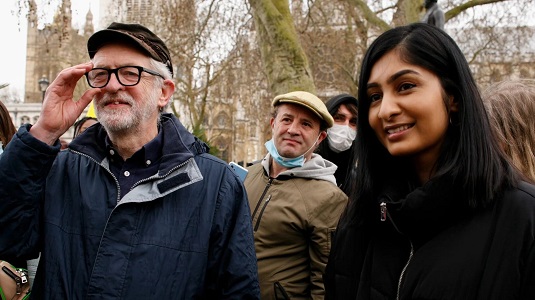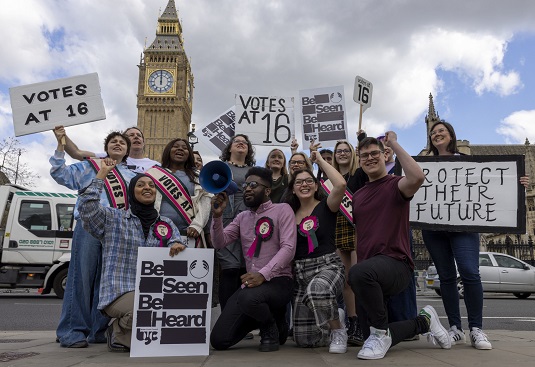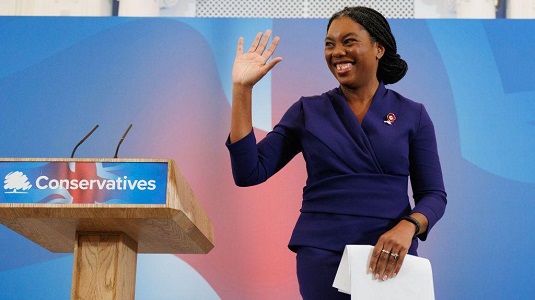
Since the announcement, and setting aside dishonest rubbish about letting Reform in and right wing panic, the establishment have, by and large, greeted it with two responses. The first is with dismissive humour, that - ho, ho, - neither Corbyn nor Sultana could get their story straight about the new party's name. What a muddle! The other, articulated on Times Radio, has it that there are too many irreconcilables among the party's potential support. That on the one hand you have Muslim voters lost to Labour over Gaza but who are socially conservative, and social progressives motivated by, among other things, trans rights. This surely is a mountain the nascent party would find impassable.
A more thought-through variant of this position is offered by John Oxley. He makes a similar point about the incompatibility between the voting behaviour of the so-called Gaza Independents in the Commons, and where the party's progressive base would sit. But a further difficulty is that if this can be overcome, it would - at best - lead to a handful of seats because the party has "too narrow a niche". Building reach requires issues that have broad appeal and can be capitalised on, as Farage has done with Brexit and immigration. Reform also complicates things, as it pivots towards Labour seats with its mix of anti-immigration, English nationalist politics, and dalliances with left-populist economics. Another problem are the new party's supporters, among whom are likely to be unpopular views at odds with public opinion, it's not clear how these difficulties could be overcome. That is, in the absence of one thing: a Farage of the left. "Someone with a demagogue appeal, political nous to weave these tribes together, and organisational skills to pull together a party which pushes its advantage strategically." Without this, there are flashes of anger and fragments of grievance. And so the new party will be born, but with limited life chances.
These are serious issues, but they are issues limited to a party of a certain type. All parties are condensers and coalitions of interests, but where the government, the Tories, Reform, and the Liberal Democrats are concerned, there is one interest that predominates - capital's. What they offer then are variations on a theme. I.e. Who can manage its collective interests best, which in the case of the Tories and Labour, is about engineering the class relationships British capitalism depends on. To ensure they're on the right track, leading figures cosy on up to business interests as closely as possible. No need for members as mediators of interests when luncheons and private meetings do the job. In Labour's case, this closeness to capital has proceeded with the attacks on and removal of democracy, due process, and natural justice inside the party. This leads to a politics where agency and efficacy is invested in the leadership, and offers bourgeois politics a model of how it should be done.
As a mainstream politics writer, this is the prism through which Oxley perceives politics. However, this is not the approach informing the new party. In the aftermath of his victory last year, Corbyn argued that he owed his return to the Commons to community embeddedness and power. And perhaps mindful of other left wing splits from Labour and the sundry efforts at building an alternative, he has been reluctant to commit to a new party in the absence of a strong base and an orientation that would sink deep roots into our class. Like many others, I've found this reticence frustrating. Starting a new organisation requires that someone who has social weight, which Corbyn does, makes the move and be the catalyst for what could come next. He might have been pushed into it before he was ready, but the die is cast and the numbers are coming up.
When he was Labour leader, Corbyn and Corbynism pushed it to the limits of Labourism and threatened to go beyond it. Corbyn tried to ground the party in community organising, to turn what was the traditional party of the working class in name into its party in substance. And it's encouraging that this model of collective power is the approach Corbyn wants to found the party on, and not the electoralism of a Labour mk II. This is where things can get weird where the mainstream model of politics is concerned. If this quickly puts on a few hundred thousand members at launch, as noted a while back the organisation in and of itself can become a political factor. Not because it can turn out armies of canvassers - though helpful. It comes from its social weight. Putting its energies and grounding its organisation in workplaces and communities makes it familiar, creating living relationships between members, activists, and our class at large. It becomes a party that lives the everyday lives of everyday people, because the party is them. The party doesn't need a strong leader, because its job is to generate hundreds of thousands of them. These aren't people who stand above and separately from them, like Labour politicians do, but are indistinguishable. Their leadership comes from organising and building institutions that bring our people together. This is not only the best way to break from Labourism and transform society for the better, it is the only practical way of doing so.
The party as a substantive collective, as a part of and vehicle for our class, this is its potential as things stand. There will be arguments and problems, but its declaration comes at the right time. Labour have performed dismally in office and have attacked its own base, like all Labour governments do. The country is pervaded by a miasma of dissatisfaction that the current crop of parties cannot intersect with. And, germane to the new party, the experience of the last decade in Labour Party politics, the explosion of street movements, and the proliferation of industrial disputes has swelled the legions of politically switched on and experienced activists looking for something to cohere their efforts around. The Labour leadership contest of 2015 and all that followed was a moment upon which the direction of this country's politics turned. This new party could be another one.
Image Credit



